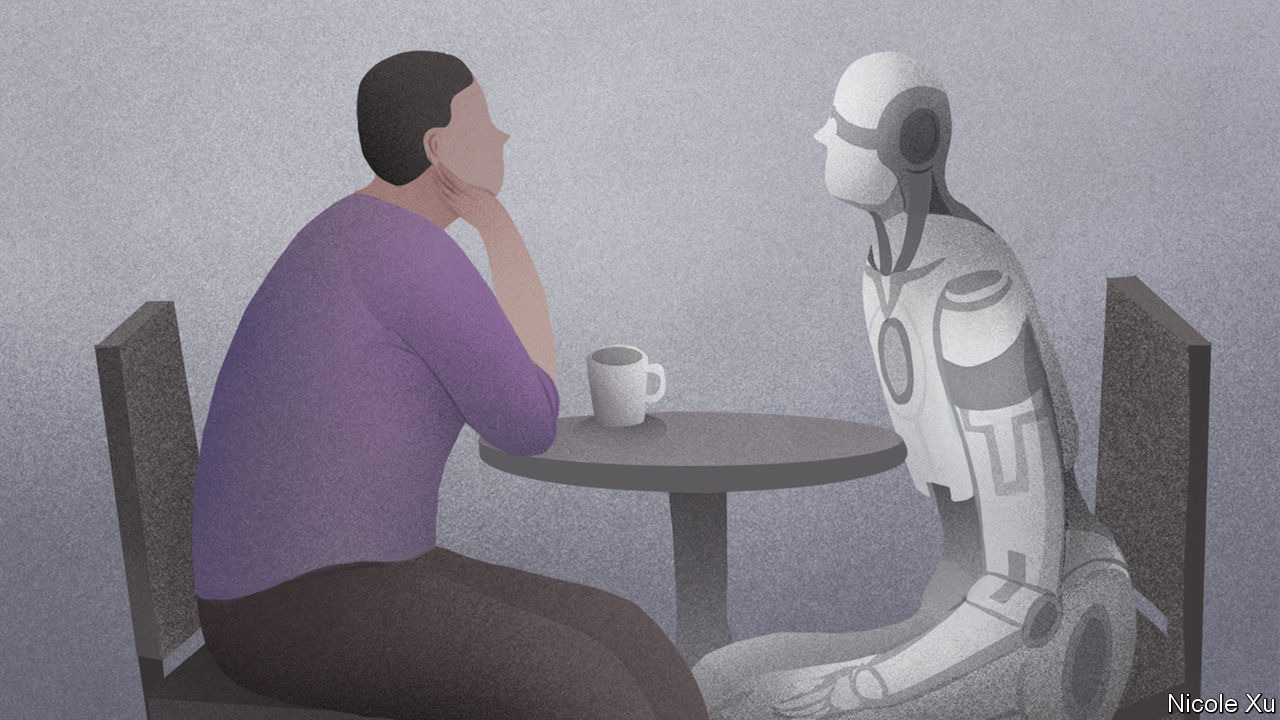By Banu Kellner, Executive Coach and Founder of SuperHuman Society

As we are entering the age of artificial intelligence (AI), we are witnessing a pace of technological evolution that is breathtaking. While AI brings forth unprecedented benefits across sectors like healthcare and entertainment, it also introduces profound questions about our societal future, notably the potential impact on mental health.
It’s perfect
The rapid integration of personal devices and social media into our lives over the past decade has undeniably influenced mental health. Numerous studies suggest a mostly negative correlation between frequent social media use and mental well-being especially for the younger generation. As AI increasingly intersects with digital platforms, there's potential for exacerbating such challenges.
The current AI applications promote unrealistic and unhealthy standards of physical perfection. Face-morphing filters on social media present idealized images, yet excessive use is linked to body dissatisfaction, anxiety, depression, and disconnection from real life. Experts are voicing concerns about AI enhancements, such as the "Bold Glamor" filters, suggesting they can magnify feelings of inadequacy by juxtaposing real life with hyper-perfected AI interpretations, especially for youth whose self-image is still developing. As companies develop hyper-realistic AI avatars and virtual worlds, these problems could grow exponentially.
The Loneliness Dilemma
Humans have always valued deep connections. Historically, our very survival depended on them. Yet, modern life, with its urban sprawl and digital immersion, has made true bonding more elusive. Alarmingly, there's a reported ”loneliness epidemic” with half of Americans feeling notably isolated.
This isn't merely about emotions. Chronic loneliness has tangible health risks, including increased chances of premature death and mental health challenges. Amid this, AI emerges with a dual-edged promise: the potential to either alleviate or amplify our solitude. Currently, there are many artificial intimacy products on the market promoting AI friends and romantic partners. Such AI offerings might seem like the perfect antidote, offering companionship without the complexities of human relationships.
However, over-reliance on AI for emotional needs could diminish our capacity to form relationships with a real humans. If AI merely serves as a band-aid for deeper societal issues, we might drift further from genuine human connections and withdraw from real life. And once our social bonding capacity is broken, we can expect fertile conditions for various mental health issues at scale. This will affect children and youth disproportionately as they are still in their sensitive developmental stage.
Job Concerns
A chief concern dominating the AI discourse is its potential effect on employment. The anxiety and depression epidemic, particularly in the US, might intensify, propelled by valid fears of job obsolescence due to AI. Anecdotal accounts from platforms like LinkedIn and Reddit tell of professionals being replaced by AI algorithms. Roles ranging from copywriters to financial planners, and from educators to advertisers, seem under potential threat. It's noteworthy that the current SAG-AFTRA/WGA protesters have urged film industry leaders to refrain from AI-driven content creation.
The anxiety surrounding AI-driven job displacement is palpable, with a CNBC report highlighting that 25% of workers apprehensively view AI as a potential job threat. While some posit that emerging roles will offset job losses, this doesn't alleviate the immediate mental health concerns during such transitions.
Identity Crisis
Even if we navigate the economic challenges—possibly through mechanisms like universal income—the deeper sociological and psychological troubles persist.
Historically, humans took pride in their unparalleled cognitive abilities. The groundbreaking innovations we've championed, from scientific breakthroughs to artistic masterpieces, all sprouted from the fertile ground of human intelligence. This distinctive intellect was the very essence of our identity, leading us to call ourselves “Homo sapiens” (i.e. “the species that knows”). But as AI begins mirroring and sometimes even surpassing our capabilities, the foundations of this identity face a profound challenge.
For a long time, we've measured our worth by the work we do. Our jobs have become an essential part of our identity. But what happens when machines start doing the work that once defined us? When productivity and even creativity are taken over by ceaseless, faultless AI, where do we stand?
As AI continues to advance and potentially surpass us in intelligence and productivity, we're confronted with an existential challenge. We may begin to see ourselves as less important or even unnecessary and view our lives as lacking meaning. The reduced status of humans can lead to feelings of depression, anxiety, and hopelessness as people struggle with a loss of purpose and meaning in their lives.
Our sense of value and standing will be tested. This looming crisis has the potential to fundamentally alter how we see ourselves. We will have to redefine what makes us worthy. This shift might be among the most monumental psychological transitions in our history.
Navigating the AI-Era
All is not bleak though. As much as AI brings grave risks, it also offers incredible possibilities for our mental health and wellbeing. As The SuperHumanist Manifesto states, we must reconsider our values and incentives so that we can avert the dangers and leverage the opportunities The AI era will bring. We're at a pivotal moment, introducing perhaps the most impactful technology ever crafted. It is our job to figure out how this technology can uplift humanity, rather than degrading and disempowering us.






